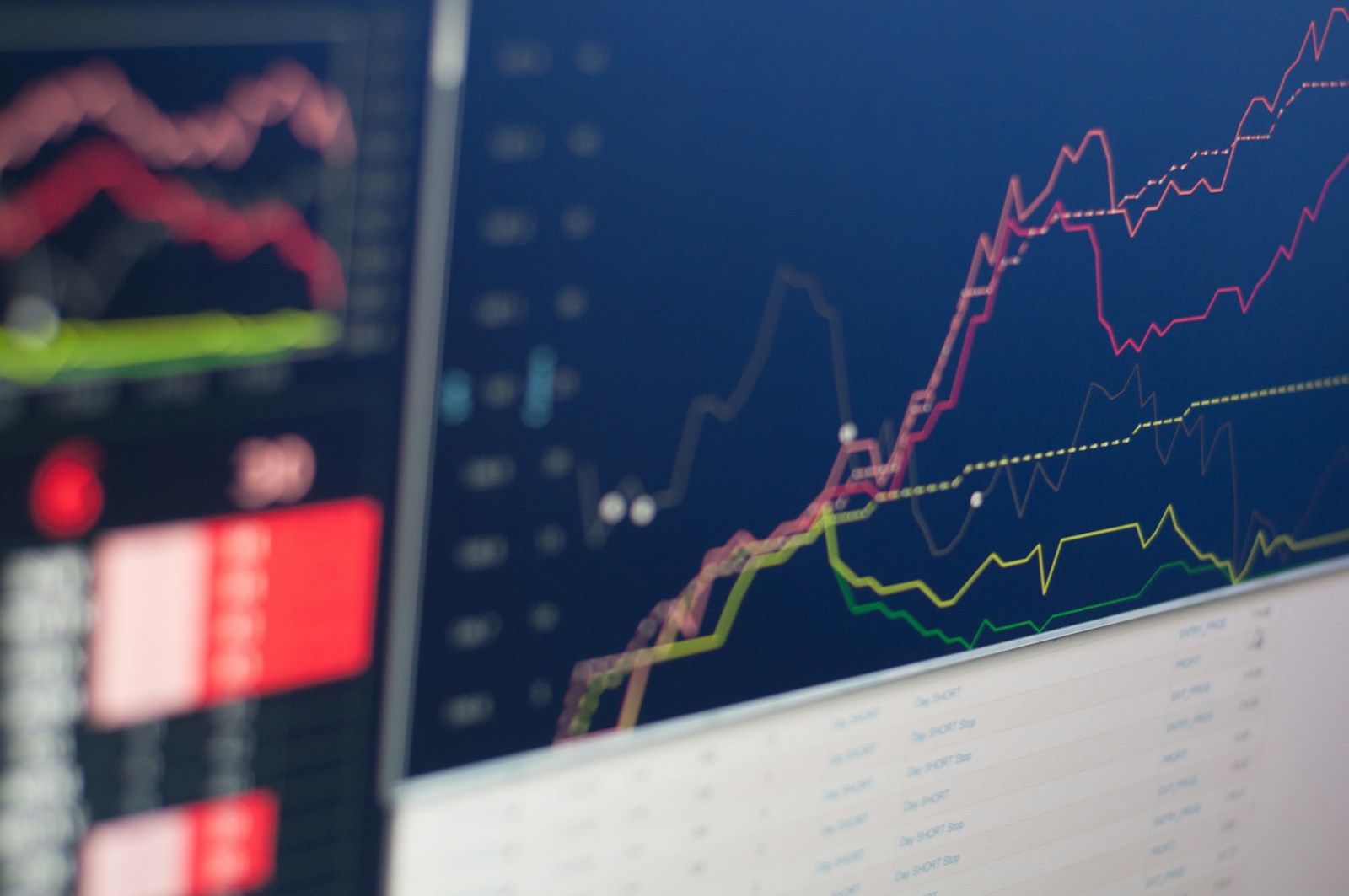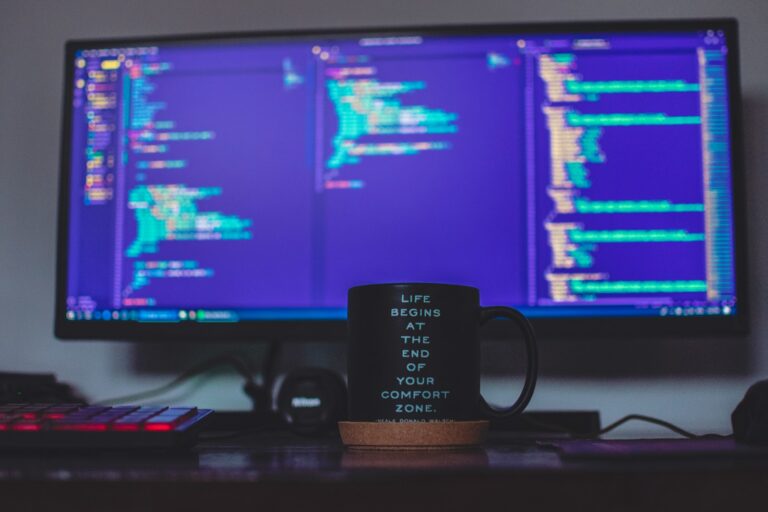Imagine this: It’s Monday morning, and Wall Street is buzzing. Traders are glued to their screens, but instead of humans making split-second decisions, AI-powered algorithms are executing trades in milliseconds. This isn’t a futuristic scenario—it’s happening right now.
Artificial intelligence is revolutionizing the stock market, helping investors predict trends, minimize risks, and maximize profits like never before. But how exactly is AI transforming trading, and what should investors know to stay ahead? Let’s break it down.
The Rise of AI in Stock Trading
AI-driven trading isn’t new. Wall Street firms have been using algorithms since the early 2000s, but recent advancements in machine learning and big data have taken it to another level.
Now, AI models analyze vast amounts of financial data, from news articles and earnings reports to social media sentiment, making faster and smarter trading decisions than humans ever could. Some of the biggest hedge funds and investment firms, like BlackRock and Renaissance Technologies, rely heavily on AI-driven strategies.
But AI isn’t just for big players—retail investors now have access to AI-powered tools, leveling the playing field like never before.
How AI is Changing the Stock Market
1. Predictive Analytics: Seeing the Future of Stocks
AI can process and analyze billions of data points to forecast market movements with impressive accuracy.
- Machine learning models detect patterns in historical stock prices to predict future trends.
- Sentiment analysis examines financial news, company announcements, and even tweets to gauge investor sentiment.
- AI-powered bots provide instant market insights, helping investors make data-driven decisions.
For example, AI models predicted Tesla’s massive growth in 2020 by analyzing social media sentiment and global electric vehicle trends—something human analysts alone might have missed.
2. Algorithmic Trading: Beating the Market in Milliseconds
Also known as quantitative trading, this AI-driven approach executes trades at lightning speed, reacting to market shifts in real time.
- AI continuously scans multiple stock exchanges for arbitrage opportunities (buying low in one market and selling high in another).
- High-frequency trading (HFT) firms use AI to execute thousands of trades per second, making small profits that add up.
- AI algorithms minimize emotional decision-making, leading to more rational investment strategies.
Big investment firms have been using algorithmic trading for years, but today, retail investors can access AI-powered trading bots through platforms like Trade Ideas and MetaTrader.
3. Risk Management: Protecting Your Portfolio
The stock market is unpredictable, but AI helps investors minimize risk by identifying potential red flags before they become major issues.
- AI models analyze economic indicators, global events, and stock price volatility to assess risk levels.
- Automated portfolio management adjusts asset allocation based on market conditions.
- AI-powered fraud detection helps prevent insider trading and market manipulation.
During the COVID-19 crash, AI systems helped some hedge funds adjust their portfolios before the market plummeted, avoiding major losses.
4. AI Stock-Picking Assistants: Helping Everyday Investors
Retail investors no longer need to rely on expensive financial advisors. AI-driven platforms now offer stock recommendations based on an individual’s risk tolerance and investment goals.
- Robo-advisors like Betterment and Wealthfront create personalized investment strategies.
- AI-powered apps suggest stocks based on real-time market conditions.
- Platforms like Zacks and Tickeron use AI to analyze stocks and offer predictions.
Even beginner investors can now make data-driven decisions without deep financial knowledge.
5. Sentiment Analysis: The Power of Social Media & News
With millions of investors sharing their thoughts on platforms like Twitter and Reddit, AI helps detect market-moving trends before they hit the mainstream media.
- AI scans thousands of tweets, articles, and forums for positive or negative sentiment.
- Reddit’s WallStreetBets movement proved how social media can impact stock prices—AI tools now help investors track these conversations in real time.
- AI can predict stock surges based on public sentiment, such as the GameStop rally in 2021.
Challenges and Limitations of AI in Stock Trading
Despite its advantages, AI isn’t foolproof. Investors should be aware of some limitations:
- AI models rely on historical data, which may not always predict future events accurately.
- Market crashes and black swan events (like COVID-19) can disrupt AI predictions.
- Over-reliance on automation can lead to flash crashes, where algorithms react too quickly, causing market instability.
- AI can be manipulated—some traders use fake news and social media bots to trick algorithms into making poor decisions.
How to Leverage AI for Your Investments
If you’re an investor looking to take advantage of AI, here’s how you can get started:
1. Use AI-Powered Investment Tools
You don’t need to be a Wall Street pro to use AI. Many AI-powered platforms can help:
- Trade Ideas – AI-driven stock analysis and trading recommendations.
- Tickeron – AI-based pattern recognition for technical analysis.
- Betterment & Wealthfront – Robo-advisors for automated investing.
2. Follow AI-Driven Market Trends
Stay updated on how AI is influencing the market by following financial blogs, AI trading forums, and stock market news sites.
3. Diversify Your Portfolio
While AI can improve stock predictions, never put all your money into one strategy. Combine AI-driven investments with traditional research to balance risk.
4. Be Aware of AI-Driven Manipulation
The stock market can be manipulated using AI-powered bots, fake social media trends, and misinformation. Always double-check sources before making investment decisions.
The Future of AI in the Stock Market
As AI continues to evolve, we can expect even more breakthroughs in stock market analysis:
- Quantum computing will make AI models even more powerful, enabling near-perfect predictions.
- Decentralized AI trading platforms may remove human intervention entirely.
- AI could soon predict macroeconomic events (like recessions) with greater accuracy.
One thing is clear: AI is here to stay, and investors who embrace it early will have a massive advantage.
Conclusion
AI is revolutionizing the stock market, making investing faster, smarter, and more accessible. Whether you’re a seasoned trader or a beginner, leveraging AI tools can help you make better decisions, minimize risks, and stay ahead of market trends.
But remember—AI is just a tool, not a crystal ball. The best investors combine AI-driven insights with their own research, critical thinking, and a well-diversified strategy.



